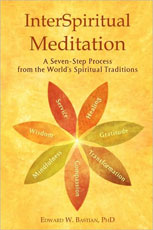"Our life experience tells us that every significant accomplishment requires motivation and perseverance. Without strong motivation, we cannot endure and surmount the inevitable physical and psychological obstacles to success — the pain, the self-doubt, the boredom, the distraction, and the fatigue. All successful people require motivation, whether they are small business owners, professional athletes, parents, politicians, doctors, fashion models, laborers, social workers, or teachers. It is no different for meditators. Those who are seeking a 'quick fix' and a sustaining high from meditation are going to be easily discouraged, and are likely to quit before the blissful fruits of meditation can be savored and enjoyed.
"The fundamental human struggle for happiness is not new. In one way or another, the founders of all the world's religions were proposing spiritual solutions to this dilemma. Approximately 2,500 years ago, the Buddha advised his students not to seek happiness in what he called 'The Eight Worldly Dharmas.' For if we did, he assured us, we would certainly be disappointed. These 'worldly dharmas' basically boil down to the following four pairs of opposites:
"Gain & Loss: When we seek things to make us happy, we are often frustrated in the attempt, angry when they don't, or saddened by their loss; therefore, we suffer.
"Pleasure & Pain: When we seek happiness through sensual pleasure, our longing and attachment to the pleasure, or sadness from the pain of unfulfilled expectations inevitably leads to pain and suffering.
"Praise & Scorn: When we seek happiness through the praise of others, this praise eventually leads to scorn and jealousy, which are the result of the ignorance that gave rise to the desire in the first place.
"Fame & Ill Repute: When we seek happiness through fame, the examination of our most minute flaws becomes the occupation of others, and we are eventually held in ill repute because of them. (Just look at the tabloids for confirmation.)
"So as we attempt to solidify our spiritual practice, it is important for each of us to bring to mind the ways in which we seek happiness on a daily basis through these 'eight worldly dharmas,' and to contemplate their inability to make us happy. When we have done this, then it is important to formally renounce these pursuits, no longer viewing them as causes of happiness, but instead, as causes of unhappiness. Following this renunciation, we are better prepared to seek the true causes of happiness, contentment, and equanimity through spiritual experience, wisdom, and realization."
